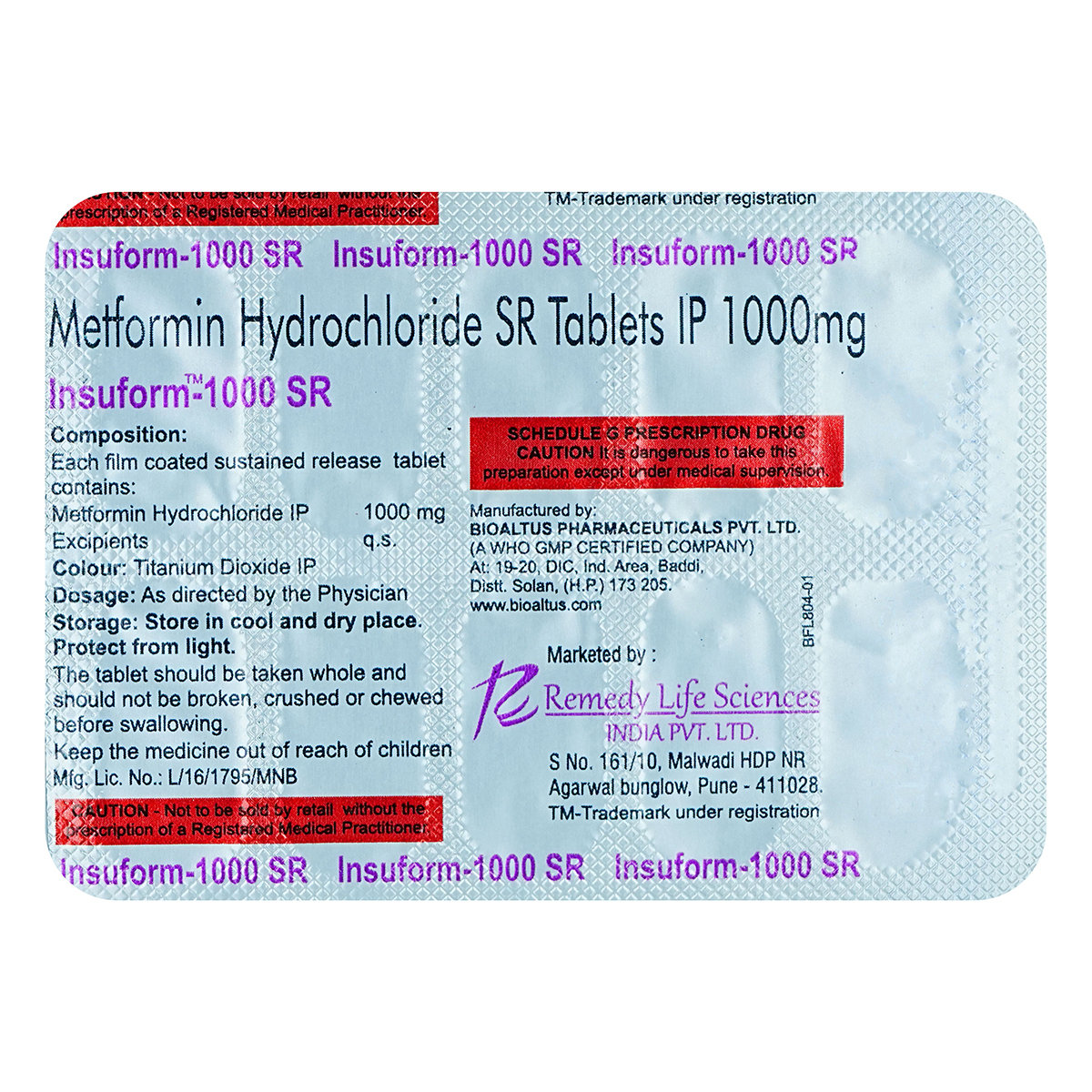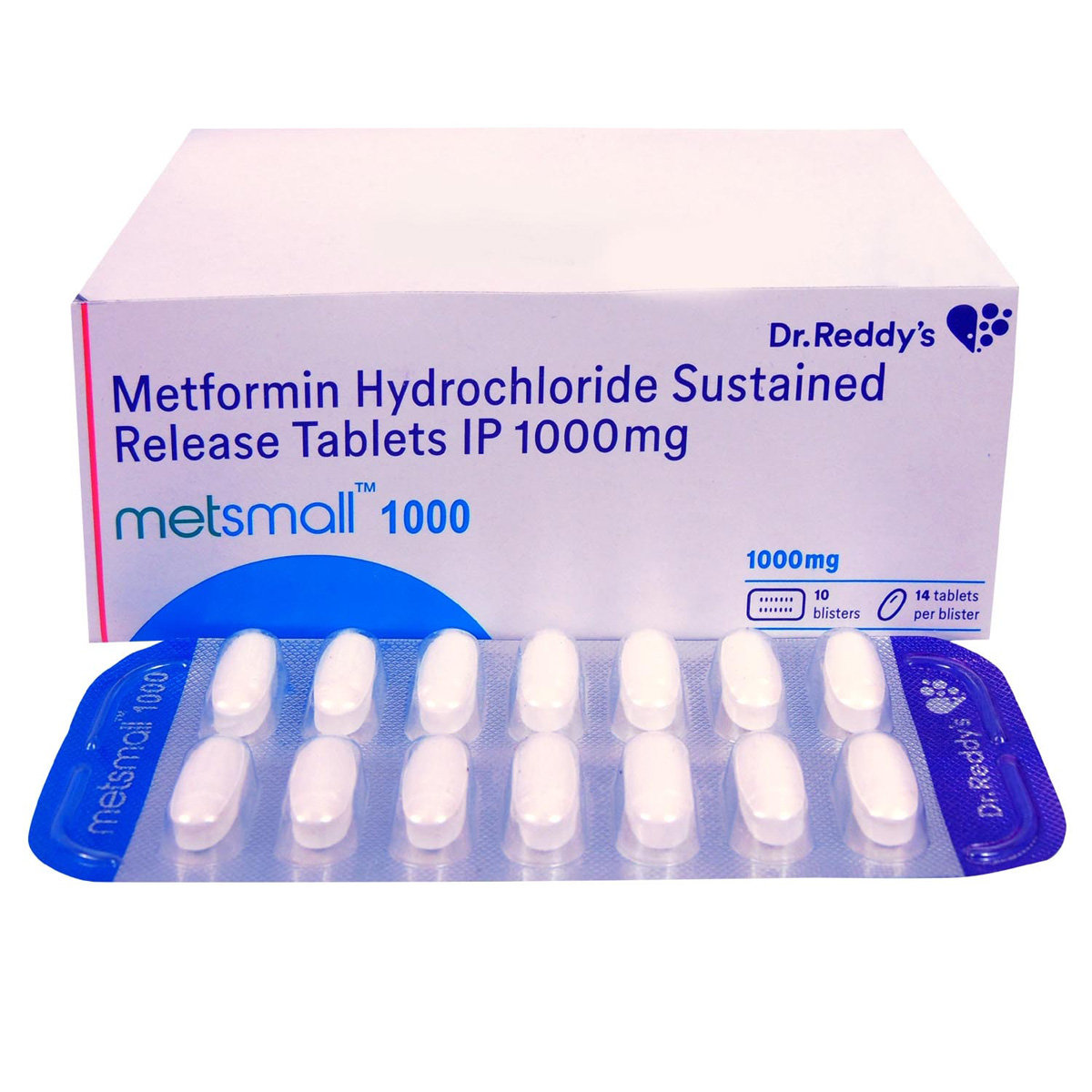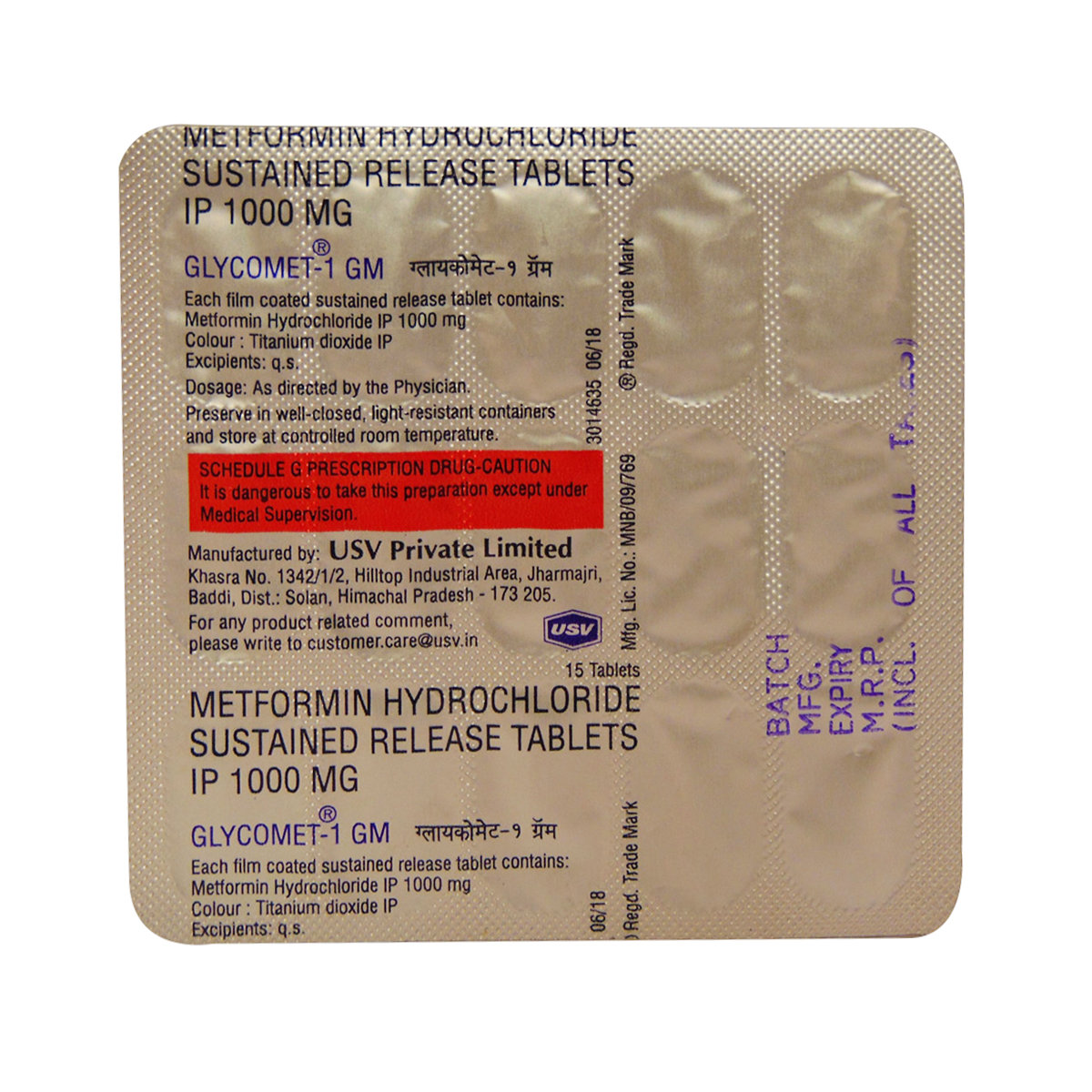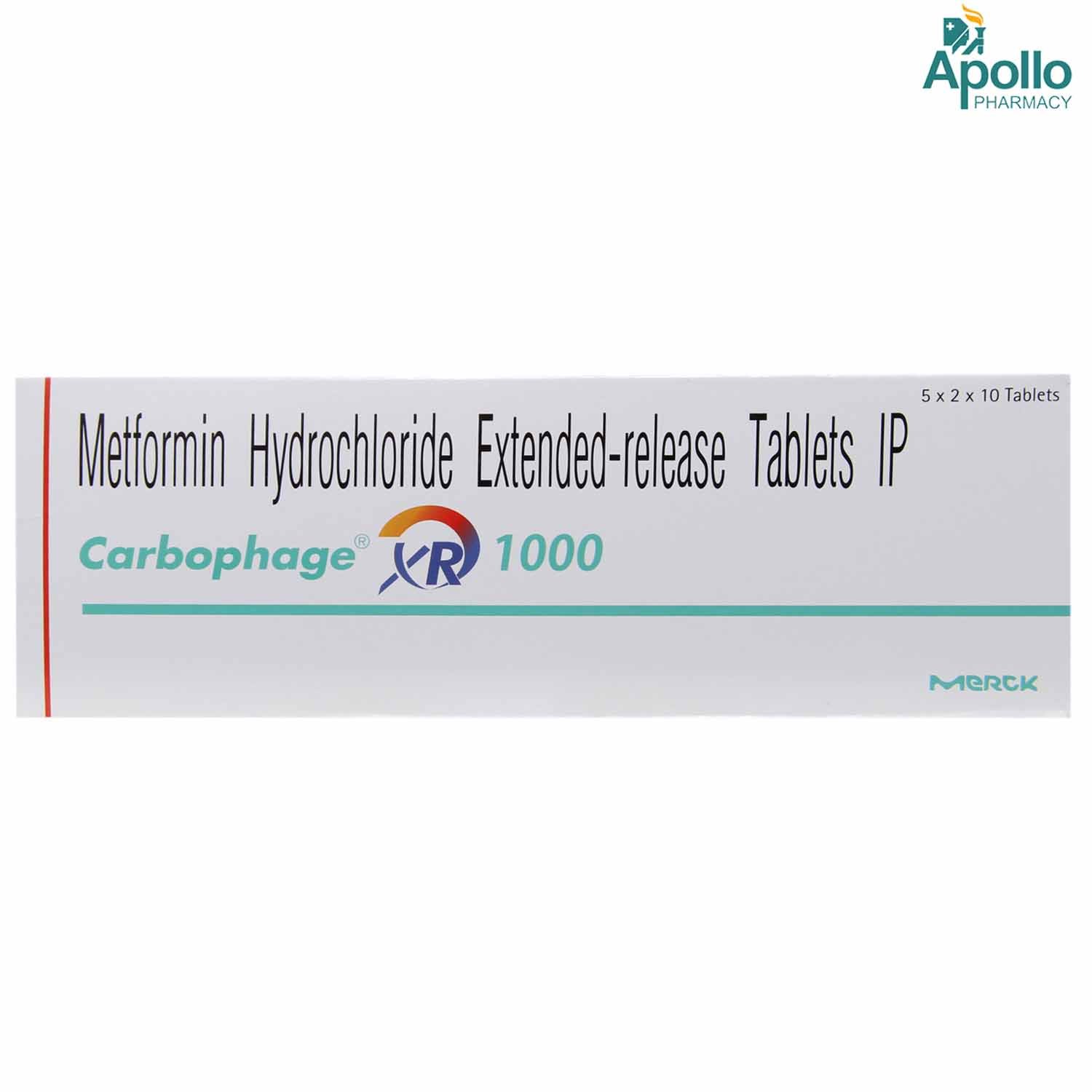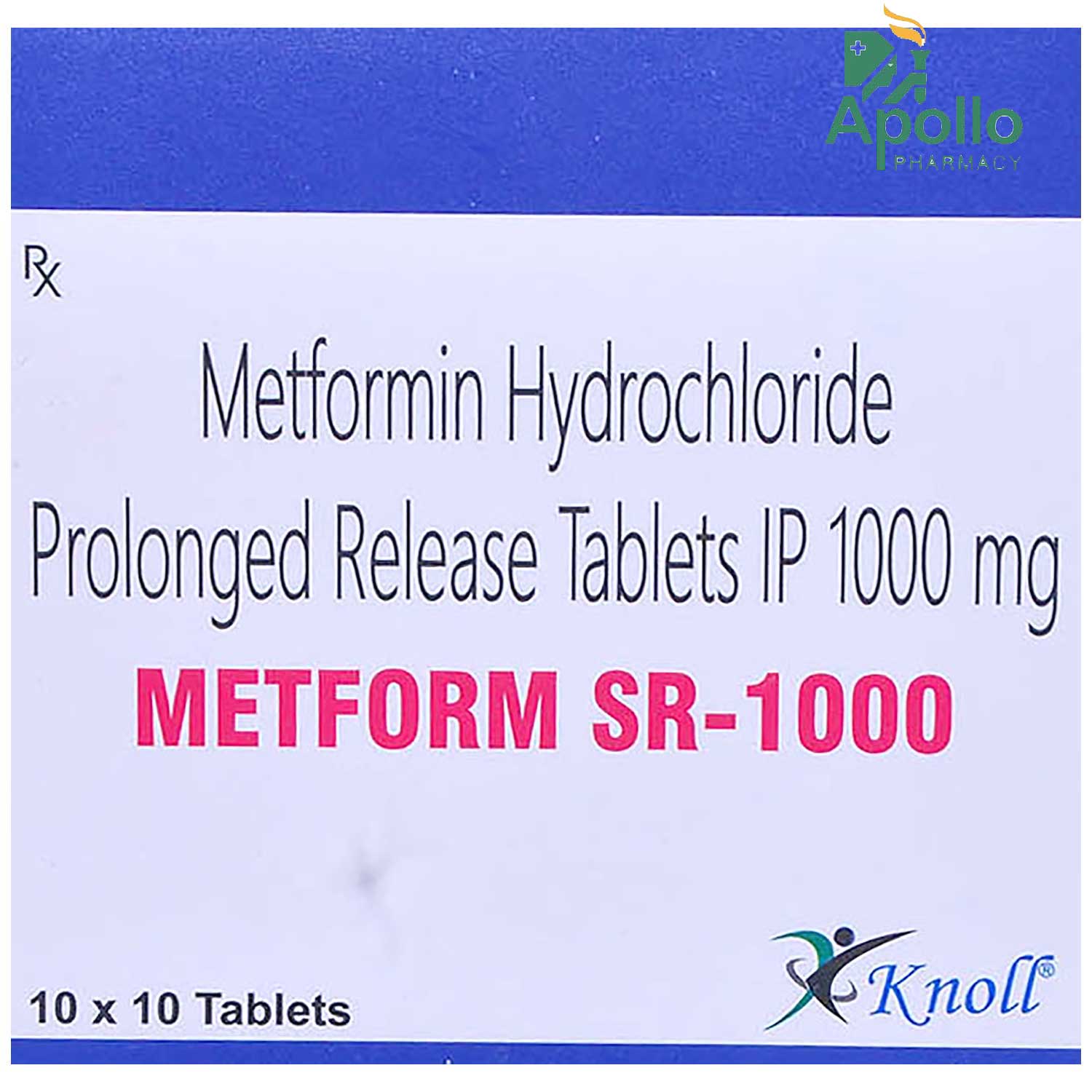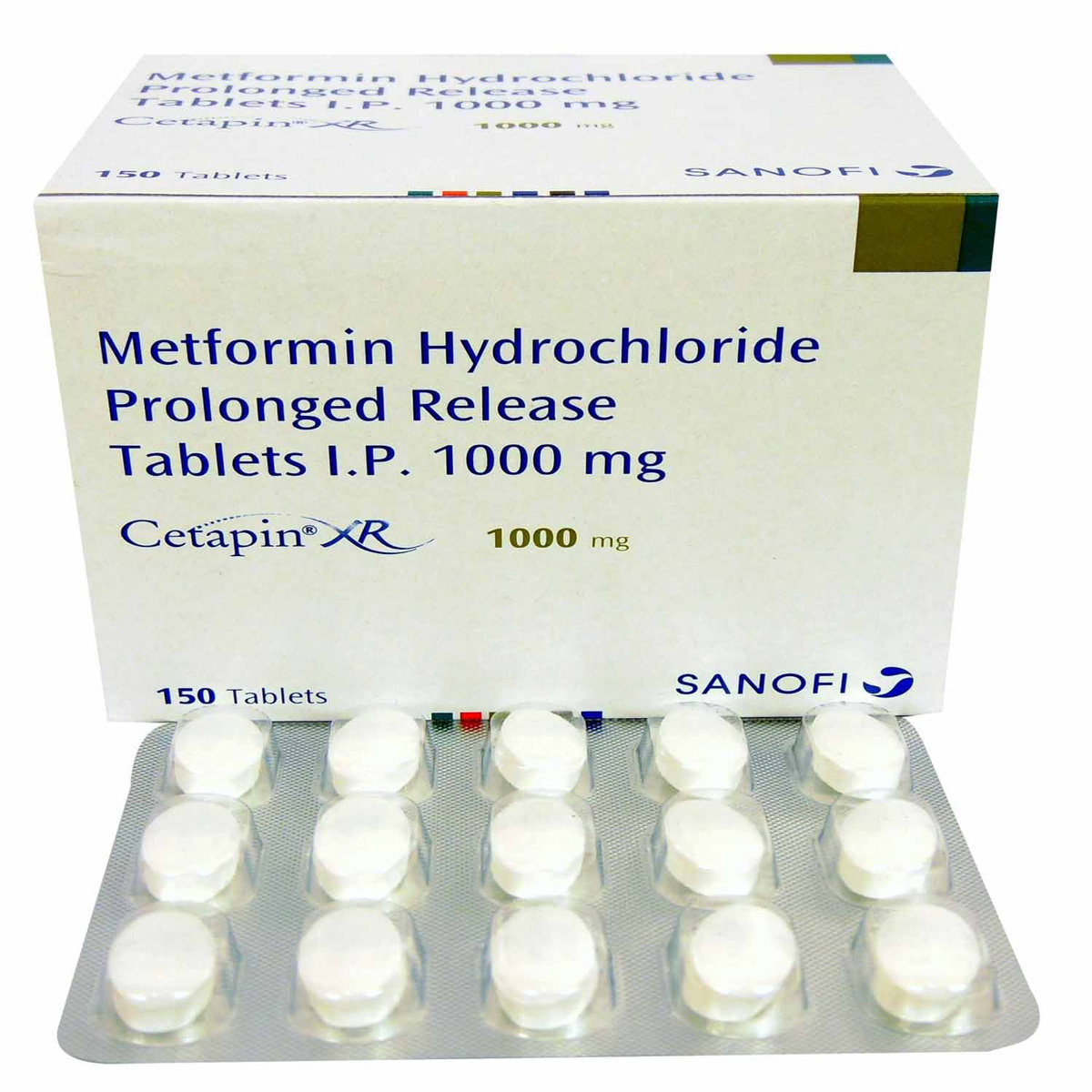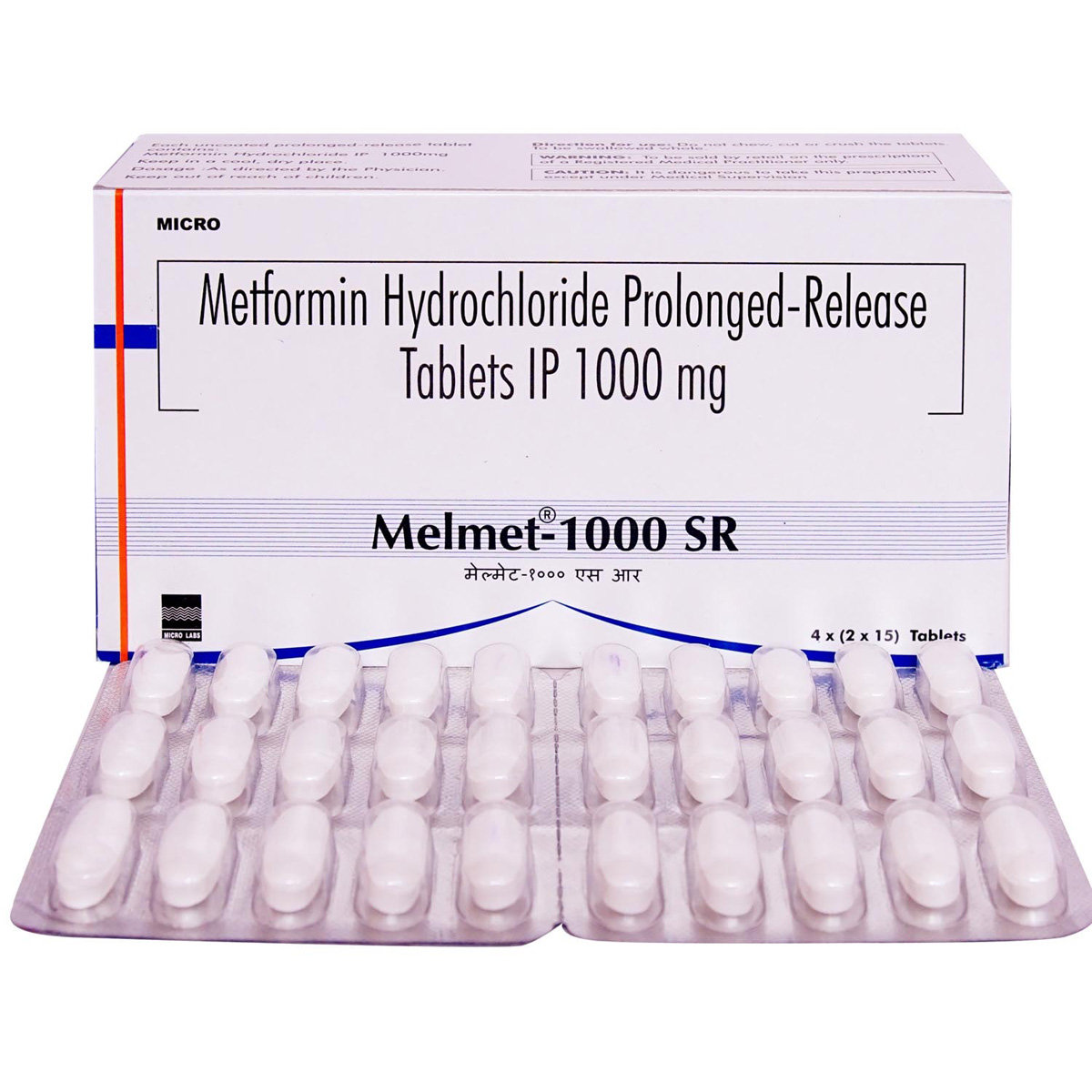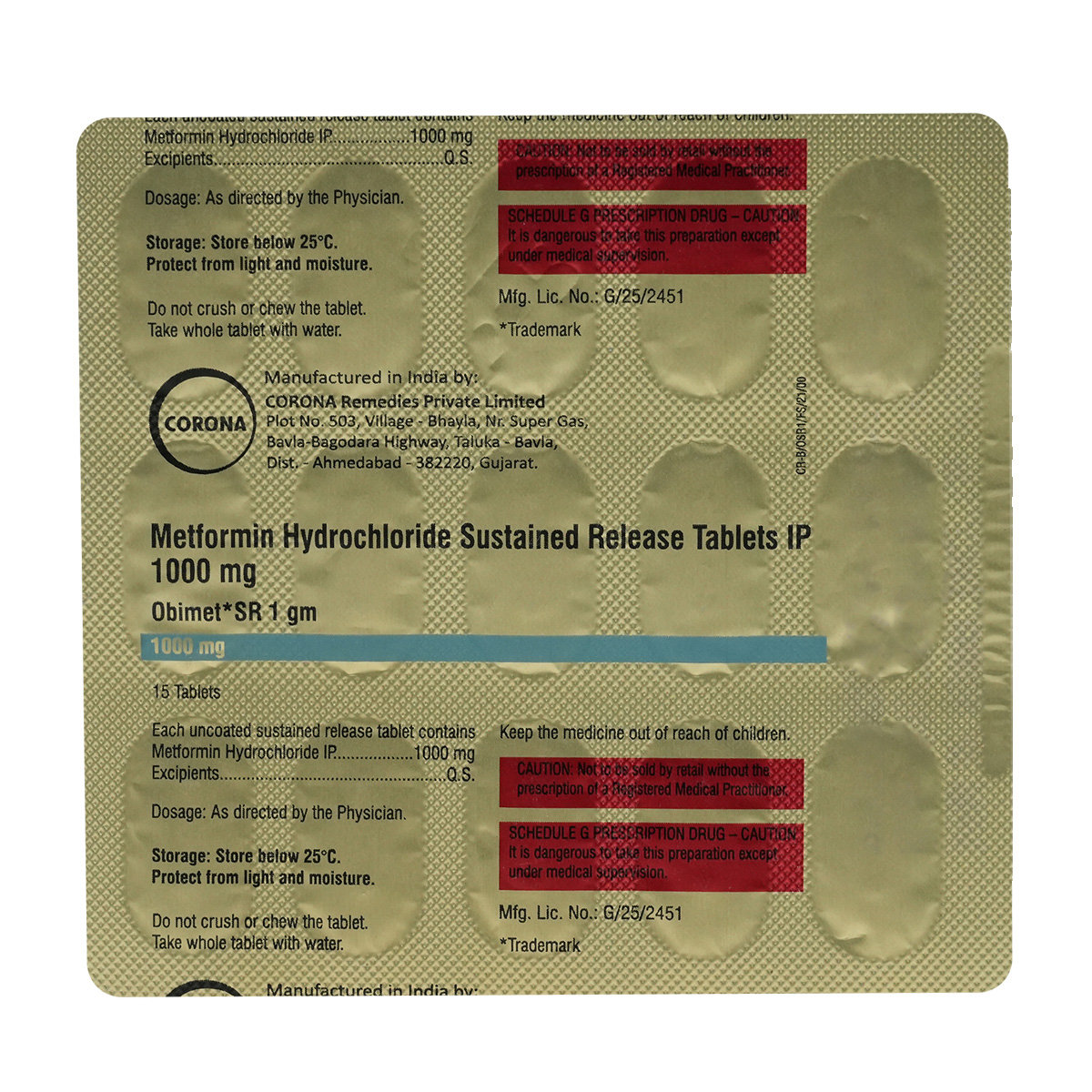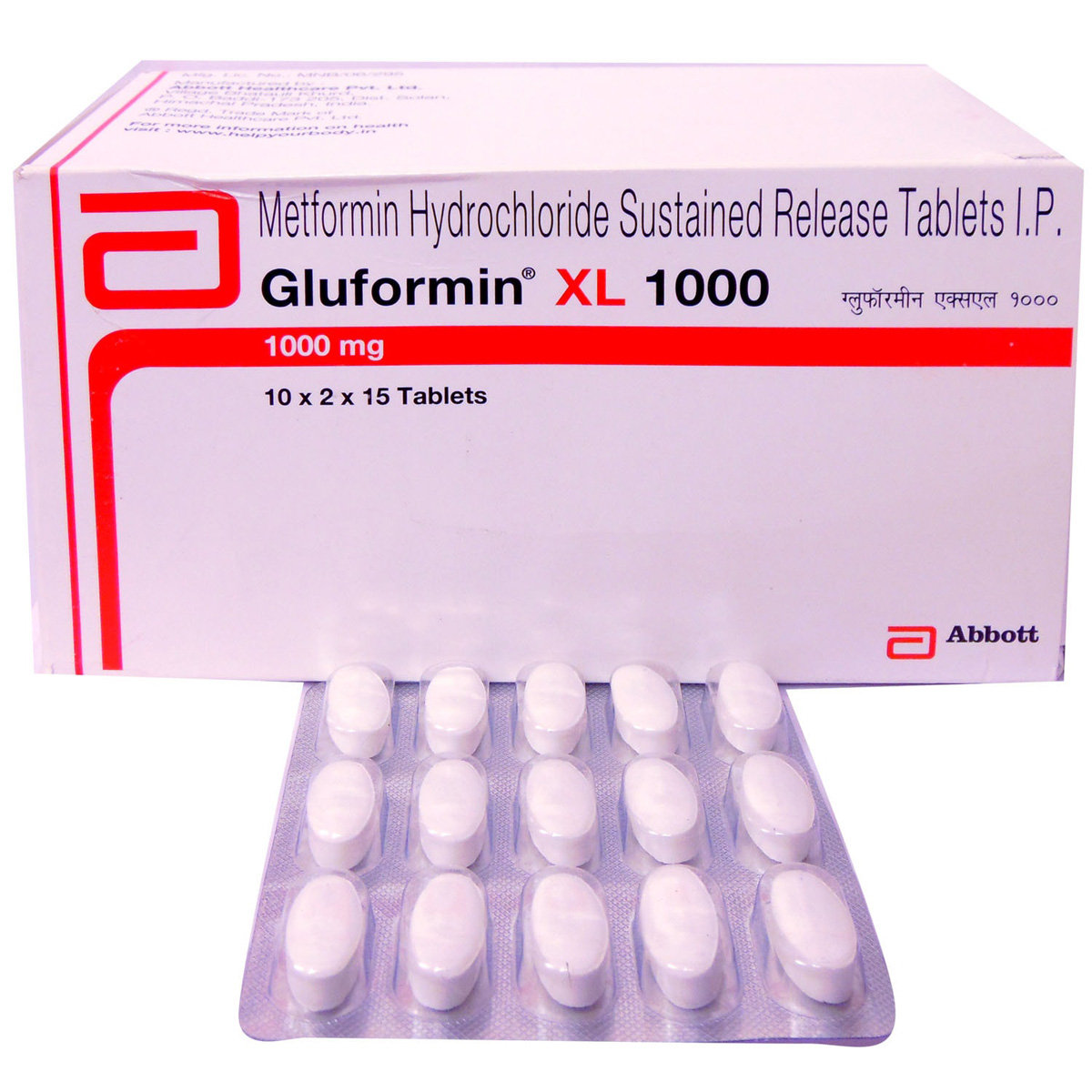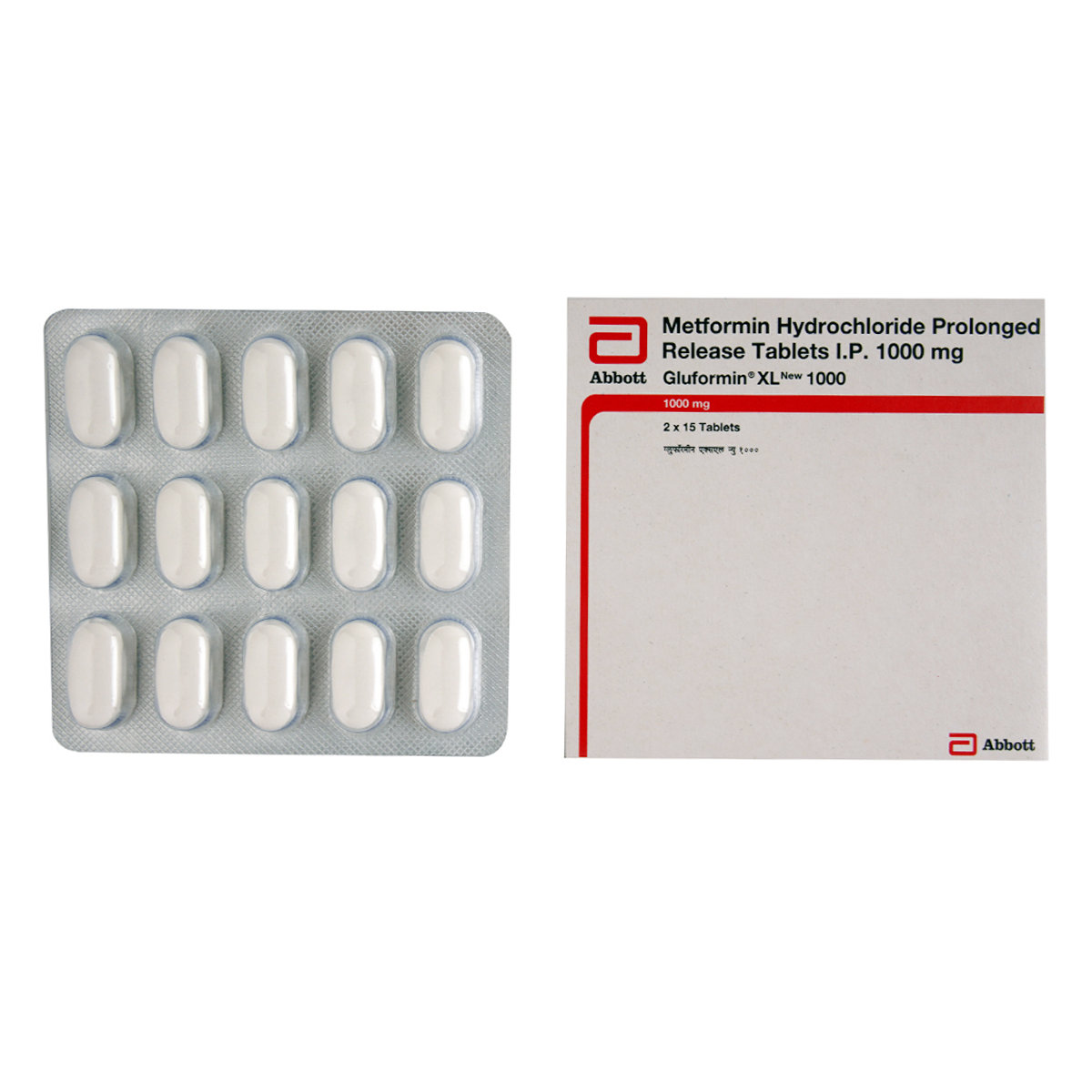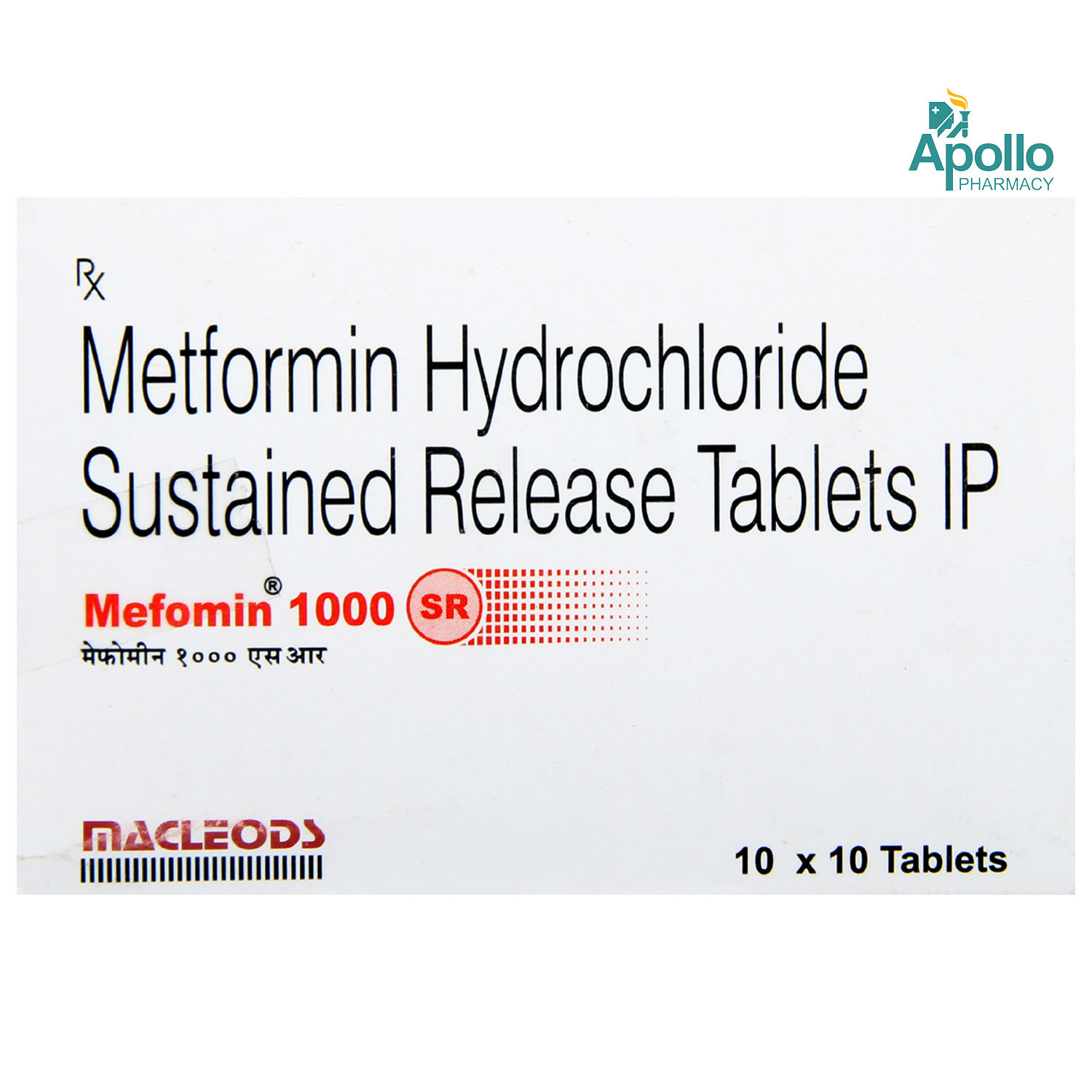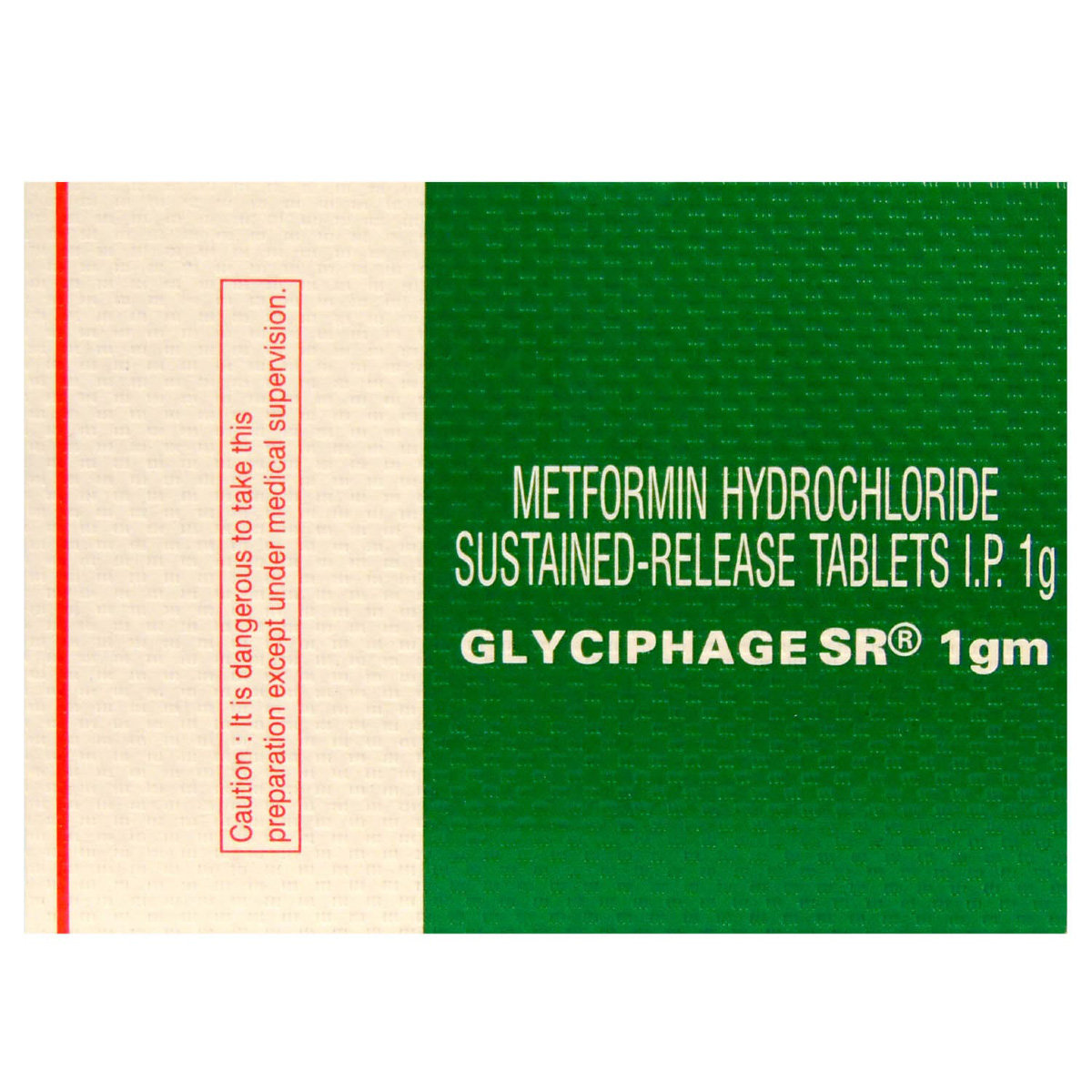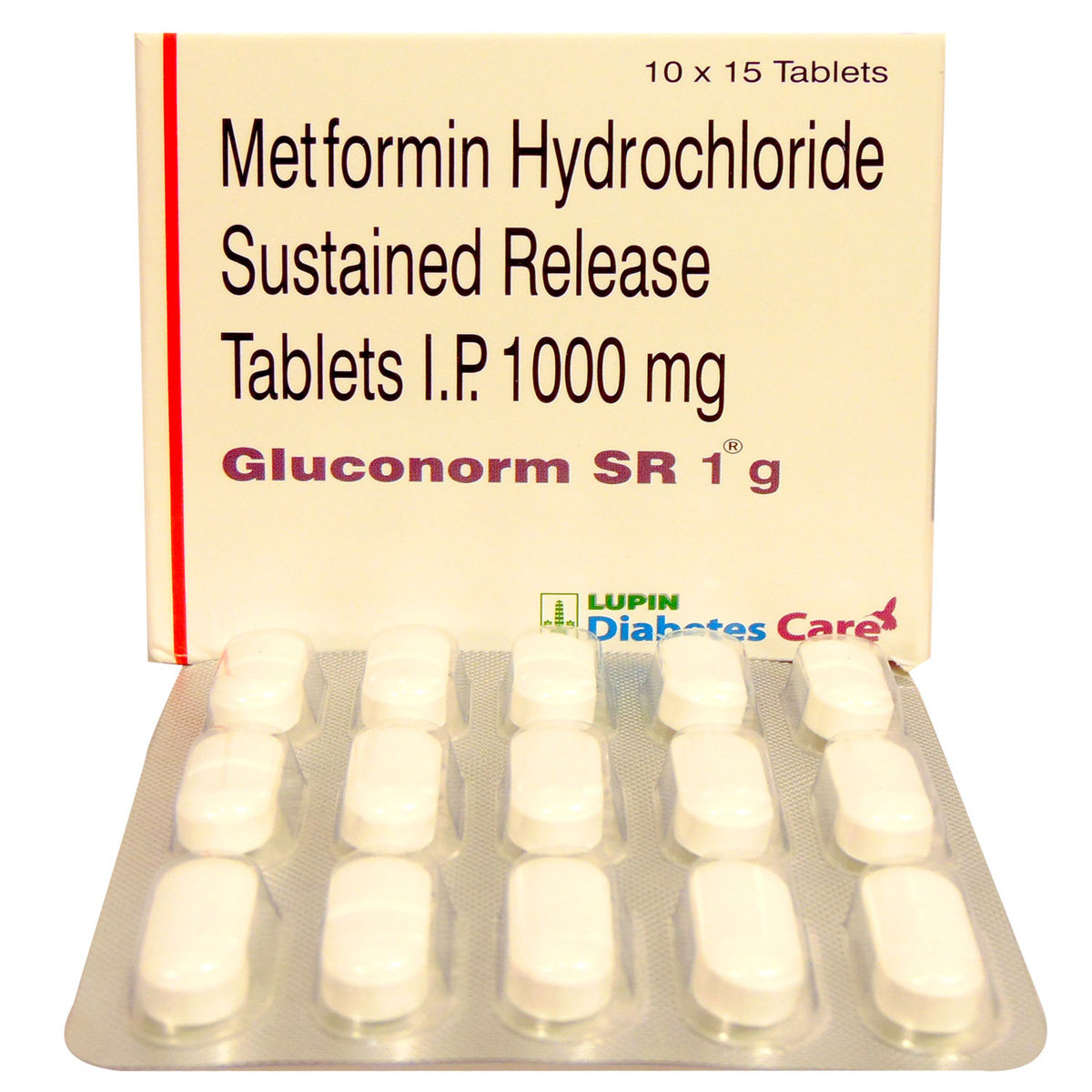Metsmall 1000 Tablet 15's
MRP ₹55.5
(Inclusive of all Taxes)
₹8.3 Cashback (15%)
Selected Pack Size:15
15 ₹50
(₹3.33 per unit)
In Stock
14 ₹45.5
(₹3.25 per unit)
In Stock
Provide Delivery Location
Online payment accepted
 Prescription drug
Prescription drugWhats That
Composition :
Manufacturer/Marketer :
Consume Type :
Expires on or after :
Return Policy :
About Metsmall 1000 Tablet 15's
Metsmall 1000 Tablet 15's belongs to a group of anti-diabetic medicines called biguanides used in the treatment of diabetes. It helps to lower the increased blood glucose level in type 2 diabetes patients. Type 2 diabetes is a chronic or lifelong disorder that affects the way our body processes glucose. People with type 2 diabetes either do not produce enough insulin or the insulin produced is unable to perform its function in the body (insulin resistance). Middle-aged or older individuals are most likely to suffer from type 2 diabetes, so it is also known as adult-onset diabetes.
Metsmall 1000 Tablet 15's is prescribed for the condition of type 2 diabetes when diet and exercise alone cannot control their blood sugar levels. It is the first-line therapy for patients with type 2 diabetes. Metsmall 1000 Tablet 15's restores the body's response to insulin, decreases the amount of blood sugar produced by the liver, and delays the absorption of sugar by the stomach or intestines. Besides, Metsmall 1000 Tablet 15's has off-label usage in women with polycystic ovary syndrome (PCOS) where it helps normalize the menstruation cycle by restoring the body's hormonal balance, lowers blood sugar levels, and stimulates ovulation.
Usually, Metsmall 1000 Tablet 15's does not cause very significant side effects. Common side effects include diarrhoea, nausea, vomiting, or a metallic taste in the mouth. In very rare cases, it may cause a condition known as lactic acidosis (too much lactic acid in the body) with symptoms like dizziness, drowsiness, muscle pain, etc. Your sugar level may go down while taking this medicine with heavy exercise, drinking excessive alcohol, or skipping meals. Talk to the doctor about any of the health conditions listed above that may require urgent medical treatment.
Metsmall 1000 Tablet 15's works best when coupled with a healthy lifestyle like losing weight if you are overweight (BMI >25), eating fewer calories (low fat and sugary food), and being more physically active (at least 150 min of activity every week).
Uses of Metsmall 1000 Tablet 15's
Directions for Use
Key Benefits
Metsmall 1000 Tablet 15's plays a vital role in managing diabetes and achieving good control of blood sugar levels by delaying the absorption of sugar and increasing insulin sensitivity in the body. Metsmall 1000 Tablet 15's does not cause a sudden lowering of the blood glucose level or cause significant hypoglycaemia. Unlike other anti-diabetic therapies like sulfonylureas or insulin, Metsmall 1000 Tablet 15's does not cause weight gain but may cause modest weight loss. In the prediabetic condition, Metsmall 1000 Tablet 15's is the only recommended treatment available. Metsmall 1000 Tablet 15's also helps to prevent serious complications of diabetes such as kidney damage (Diabetic Nephropathy), blindness (Diabetic Retinopathy), loss of sensation in your hands and feet (Diabetic Neuropathy) or even loss of foot! Metsmall 1000 Tablet 15's also helps to reduce your chance of having a heart attack or stroke.
Storage
- Inform Your Doctor: Notify your doctor immediately about your diarrhoea symptoms. This allows them to adjust your medication or provide guidance on managing side effects.
- Stay Hydrated: Drink plenty of fluids to replace lost water and electrolytes. Choose water, clear broth, and electrolyte-rich drinks. Avoid carbonated or caffeinated beverages to effectively rehydrate your body.
- Follow a Bland Diet: Eat easy-to-digest foods to help firm up your stool and settle your stomach. Try incorporating bananas, rice, applesauce, toast, plain crackers, and boiled vegetables into your diet.
- Avoid Trigger Foods: Steer clear of foods that can worsen diarrhoea, such as spicy, fatty, or greasy foods, high-fibre foods, and dairy products (especially if you're lactose intolerant).
- Practice Good Hygiene: Maintain good hygiene to prevent the spread of infection. To stay healthy, wash your hands frequently, clean and disinfect surfaces regularly, and avoid exchanging personal belongings with others.
- Take Anti-Diarrheal Medications: If your doctor advises, anti-diarrheal medications such as loperamide might help manage diarrhoea symptoms. Always follow your doctor's directions.
- Keep track of your diarrhoea symptoms. If they don't get better or worse or are accompanied by severe stomach pain, blood, or dehydration signs (like extreme thirst or dark urine), seek medical help.
- Inform your doctor about the nausea and discuss possible alternatives to the medication or adjustments to the dosage.
- Divide your daily food intake into smaller, more frequent meals to reduce nausea.
- Opt for bland, easily digestible foods like crackers, toast, plain rice, bananas, and applesauce.
- Avoid certain foods that can trigger nausea, such as fatty, greasy, spicy, and smelly foods.
- Drink plenty of fluids, such as water, clear broth, or electrolyte-rich beverages like coconut water or sports drinks.
- Use ginger (tea, ale, or candies) to help relieve nausea.
- Get adequate rest and also avoid strenuous activities that can worsen nausea.
- Talk to your doctor about taking anti-nausea medication if your nausea is severe.
- Record when your nausea occurs, what triggers it, and what provides relief to help you identify patterns and manage your symptoms more effectively.
- Preventing Vomiting (Before it Happens)
- Take medication exactly as prescribed by your doctor. This can help minimize side effects, including vomiting.
- Having a small meal before taking your medication can help reduce nausea and vomiting.
- Talk to your doctor about taking anti-nausea medication along with your prescribed medication.
- Managing Vomiting (If it Happens)
- Try taking ginger in the form of tea, ale, or candy to help alleviate nausea and vomiting.
- What to Do if Vomiting Persists
- Consult your doctor if vomiting continues or worsens, consult the doctor for guidance on adjusting your medication or additional treatment.
- Tell your doctor about your GAS symptoms. They may change your medication regimen or prescribe additional drugs to help you manage them.
- To manage GAS symptoms, eat a balanced diet of fibre, vegetables, and fruits.
- Drink enough water throughout the day to avoid constipation and treat GAS symptoms.
- Regular exercise like yoga and walking may help stimulate digestion and alleviate GAS symptoms.
- Take probiotics only if your doctor advises, as they may help alleviate GAS symptoms by promoting gut health.
- Take medication for GAS symptoms only if your doctor advises, as certain medications can interact with your existing prescriptions or worsen symptoms.
- If symptoms persist, worsen, or are accompanied by severe abdominal pain, vomiting, or bleeding, seek immediate medical attention.
- If you experience low blood sugar levels, inform your doctor. They will assess the severity and make recommendations for the next actions.
- Your doctor will assess your symptoms, blood sugar levels, and overall health before recommending the best course of action, which may include treatment, lifestyle modifications, or prescription adjustments.
- Follow your doctor's instructions carefully to manage the episode and adjust your treatment plan.
- Make medication adjustments as recommended by your doctor to prevent future episodes.
- Implement diet and lifestyle modifications as your doctor advises to manage low blood sugar levels.
- Monitor your blood sugar levels closely for patterns and changes.
- Track your progress by recording your blood sugar levels, food intake, and physical activity.
- Seek further guidance from your doctor if symptoms persist or worsen so that your treatment plan can be revised.
- Take medications with food (if recommended): It can help prevent stomach distress and indigestion.
- Eat smaller, more frequent meals: Divide daily food intake into smaller, more frequent meals to ease digestion.
- Avoid trigger foods: Identify and avoid foods that trigger indigestion, such as spicy, fatty, or acidic foods.
- Stay upright after eating: Sit or stand upright for at least 1-2 hours after eating to prevent stomach acid from flowing into the oesophagus.
- Avoid carbonated drinks: Avoid drinking carbonated beverages, such as soda or beer, which can worsen indigestion.
- Manage stress: To alleviate indigestion, engage in stress-reducing activities like deep breathing exercises or meditation.
- Consult a doctor if needed: If indigestion worsens or persists, consult a healthcare professional to adjust the medication regimen or explore alternative treatments.
- Rest well; get enough sleep.
- Eat a balanced diet and drink enough water.
- Manage stress with yoga and meditation.
- Limit alcohol and caffeine.
- Physical activities like walking or jogging might help boost energy and make you feel less tired.
Drug Warnings
Some diabetic patients taking Metsmall 1000 Tablet 15's may develop a serious condition called lactic acidosis. In lactic acidosis, there is too much lactic acid accumulated in the blood. So, your liver and kidney proper functioning is required for the elimination of excess lactic acid from the blood. You should not take metformin if you have kidney disease, as measured by a blood test. Metsmall 1000 Tablet 15's may lower vitamin B-12 levels, so try to have blood test annual blood and vitamin. Metsmall 1000 Tablet 15's, when used with insulin, may extremely lower the blood sugar level. So, the doctor may lower the dose of insulin.
Drug-Drug Interactions
Drug-Drug Interactions
Login/Sign Up
Co-administration of Metsmall 1000 Tablet and Iodamide can increase the risk of lactic acidosis (when the body produces too much lactic acid).
How to manage the interaction:
Taking Metsmall 1000 Tablet with Iodamide is generally avoided as it can result in an interaction, please consult your doctor before taking it.
Co-administration of Metsmall 1000 Tablet and Iobenzamic acid can increase the risk of lactic acidosis (when the body produces too much lactic acid).
How to manage the interaction:
Taking Metsmall 1000 Tablet with Iobenzamic acid is generally avoided as it can result in an interaction, please consult your doctor before taking it.
Co-administration of Metsmall 1000 Tablet with Metrizamide together can cause the risk of lactic acidosis (when the body produces too much lactic acid ).
How to manage the interaction:
Taking Metsmall 1000 Tablet with Metrizamide is generally avoided as it can possibly result in an interaction, it can be taken if a doctor has advised it. However, if you experience headaches, muscle cramps or pain, contact a doctor immediately. Do not discontinue any medications without consulting a doctor.
Co-administration of Iopydol with Metsmall 1000 Tablet can increase the risk of side effects.
How to manage the interaction:
Taking Metsmall 1000 Tablet with Iopydol is not recommended, please consult your doctor before taking it.
Co-administration of Metsmall 1000 Tablet and Iocarmic acid can increase the risk of lactic acidosis (when the body produces too much lactic acid).
How to manage the interaction:
Taking Metsmall 1000 Tablet with Iocarmic acid is generally avoided as it can result in an interaction. please consult your doctor before taking it.
Co-administration of Iodixanol with Metsmall 1000 Tablet can increase the risk of side effects.
How to manage the interaction:
Taking Metsmall 1000 Tablet with Iodixanol is not recommended, please consult a doctor before taking it. Do not discontinue the medications without consulting a doctor.
Co-administration of Metsmall 1000 Tablet and Iobitridol can increase the risk of lactic acidosis (when the body produces too much lactic acid).
How to manage the interaction:
Taking Metsmall 1000 Tablet with Iobitridol is generally avoided as it can result in an interaction. Please consult your doctor before taking it.
Co-administration of Ioversol with Metsmall 1000 Tablet can increase the risk of side effects.
How to manage the interaction:
Taking Metsmall 1000 Tablet with Ioversol is not recommended, please consult your doctor before taking it.
Co-administration of Iopamidol with Metsmall 1000 Tablet can increase the risk of side effects.
How to manage the interaction:
Taking Metsmall 1000 Tablet with Iopamidol is not recommended, please consult a doctor before taking it. Do not discontinue the medications without consulting a doctor.
Co-administration of Iotroxic acid with Metsmall 1000 Tablet can increase the risk of side effects.
How to manage the interaction:
Taking Metsmall 1000 Tablet with Iotroxic acid is not recommended, please consult your doctor before taking it.
Drug-Food Interactions
Drug-Food Interactions
Login/Sign Up
Diet & Lifestyle Advise
- Invest at least 150 min of your week in moderate-intensity physical activity or one hour and 15 minutes of high-intensity exercise every week.
- Losing weight gradually to achieve a healthy body mass index (18.5 to 24.9).
- Replacing refined carbohydrates-containing foods with whole grain foods and increasing intake of fruits and veggies and other fiber enriched foods.
- Reduce intake of saturated fat (or hidden fats) in food like chips, crisps, pastries, biscuits, and samosas. Choose omega-3 fatty acid-containing oils for daily cooking. For frying, you can use palm oil, mustard oil, groundnut oil, rice bran oil, and safflower oil.
- Avoid taking too much stress as it may elevate your blood sugar level. You can adopt stress management techniques like mindfulness to control stress-related blood sugar changes or meditation or yoga.
- Opt for low-fat dairy products (low-fat yogurt, fat-free milk, cheese, etc.).
- Keep your blood pressure as normal (140/90) as possible as it reduces the risk of cardiovascular diseases in diabetes patients.
Side Effects of Metsmall 1000 Tablet 15's
- Digestive problems
- Nausea
- Vomiting
- Diarrhoea
- Abdominal pain
- Loss of appetite
Habit Forming
Therapeutic Class
All Substitutes & Brand Comparisons
RX
Insuform SR 1000 mg Tablet 10's
Remedy Life Sciences Pvt Ltd
₹31.5
(₹2.84 per unit)
14% CHEAPERRX
Metsmall 1000 Tablet 14's
Dr Reddy's Laboratories Ltd
₹50.5
(₹3.25 per unit)
2% CHEAPERRX
Glycomet 1 GM Tablet 15's
USV Pvt Ltd
₹63
(₹3.78 per unit)
13% COSTLIER
Author Details
We provide you with authentic, trustworthy and relevant information
Drug-Diseases Interactions
Drug-Diseases Interactions
Login/Sign Up
FAQs
Drug-Drug Interactions Checker List
- BUPROPION
- CEPHALEXIN
- CIPROFLOXACIN
- CIMETIDINE
- DIGOXIN
- DOLUTEGRAVIR
- GLYCOPYRROLATE
- TOPIRAMATE
- LAMOTRIGINE
- RANOLAZINE
- ALPHA LIPOIC ACID
- ASPIRIN
- PROTHIONAMIDE
- PEGVISOMANT
Special Advise
- Keep taking Metsmall 1000 Tablet 15's even if you think your blood sugar levels are under control. If you miss a dose, do not take a larger dose, consult your treating physician for advice.
- Take short frequent meals, avoid prolonged fasting when taking Metsmall 1000 Tablet 15's. Beware of symptoms of hypoglycaemia (low blood sugar) which include sweating, dizziness, palpitations, shivering, intense thirst, dry mouth, dry skin, frequent urination etc. Whenever you experience any of the above mentioned symptoms, immediately consume 5-6 candies or 3 glucose biscuits or 3 teaspoons of honey/sugar and also get in touch with your physician. Make sure to carry these with you at all times, especially during long travels.
- It is always better that your physician knows about any underlying conditions like kidney disease or liver disease, prior heart attack, alcohol intake, etc before the doctor prescribes you Metsmall 1000 Tablet 15's.
- Avoid drinking alcohol while on Metsmall 1000 Tablet 15's as it increases the risk of hypoglycaemia (decrease in blood sugar which might be fatal in some cases) and lactic acidosis (when the lactic acid increases in the body which impacts the functioning of various organs in the body).
- Try to quit smoking and reduce intake of carbohydrate rich food like potato, rice, mangoes, bread, sugar etc.
- Remember, lifestyle modifications are the most important step in controlling blood sugar levels.
Disease/Condition Glossary
Type 2 diabetes: It is a chronic or lifelong disease that keeps the body away from properly utilizing insulin. Hence, people affected with type 2 diabetes either do not produce enough insulin, or there is resistance to the action of insulin. Middle-aged or older are most likely to suffer from type 2 diabetes, so it is also known as adult-onset diabetes. Symptoms of type 2 diabetes include increased thirst, frequent urination at night, slow wound healing, increased hunger, fatigue, and blurred vision. In some cases, there may be weight gain while in rare cases weight loss may be observed. The complication of type 2 diabetes also includes neuropathy (nerve problems), nephropathy (kidney problems), and retinopathy (damaged retina of eyes or blindness), loss of limbs, sexual dysfunction, and increase chance of heart attack or stroke.

Have a query?
Alcohol
Safe if prescribed
It is advisable not to consume alcohol along with Metsmall 1000 Tablet 15's to avoid unpleasant side-effects like lactic acidosis.
Pregnancy
Consult your doctor
Metsmall 1000 Tablet 15's is not recommended during pregnancy. However, your doctor may prescribe it for you during pregnancy if he/she feels that the benefit to you outweighs the risk. You should not take Metsmall 1000 Tablet 15's without doctor's advice.
Breast Feeding
Consult your doctor
Metsmall 1000 Tablet 15's is not recommended if you are breast-feeding or if you are planning to breast-feed your baby.
Driving
Safe if prescribed
Metsmall 1000 Tablet 15's monotherapy (the treatment of a disease with a single drug) does not cause hypoglycaemia (low blood sugar) and therefore has no effect on the ability to drive or to use machines.
Liver
Consult your doctor
Metsmall 1000 Tablet 15's to be taken with caution, especially if you have a history of liver diseases/conditions. The dose may have to be adjusted by your doctor.
Kidney
Consult your doctor
Metsmall 1000 Tablet 15's to be taken with caution, especially if you have a history of Kidney diseases/conditions. The dose may have to be adjusted by your doctor depending on your renal functions. Metsmall 1000 Tablet 15's is not recommended in severe kidney disease. Regular monitoring of kidney function tests is therefore important if you're taking Metsmall 1000 Tablet 15's.
Children
Safe if prescribed
Metsmall 1000 Tablet 15's is not recommended for children below 10 years of age. For children above 10 years, dose to be adjusted and recommended by a child specialist only.
Recommended for a 30-day course: 4 Strips










